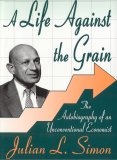
The U.S., Europe and Japan spend $350 billion each year on agricultural subsidies (seven times as much as global aid to poor countries), and this money creates gluts that lower commodity prices and erode the living standard of the world's poorest people.
"These subsidies are crippling Africa's chance to export its way out of poverty," said James Wolfensohn, the World Bank president, in a speech last month.
Mark Malloch Brown, the head of the United Nations Development Program, estimates that these farm subsidies cost poor countries about $50 billion a year in lost agricultural exports. By coincidence, that's about the same as the total of rich countries' aid to poor countries, so we take back with our left hand every cent we give with our right.
What are the economic implications of technologies that can control after-purchase use? The answer depends on how competitive the markets are. Take the inkjet printer market. If cartridges have a high profit margin but the market for printers is competitive, competition will push down the price of printers to compensate for the high-priced cartridges. Restricting after-purchase use makes the monopoly in cartridges stronger (since it inhibits refills), but that just makes sellers compete more intensely to sell printers, leading to lower prices in that market. This is just the old story of "give away the razor and sell the blades."
MY presence in the marketplace selling the stock in question means that the price that the stock will eventually be sold must be less than what it would be without my presence in the marketplace. The buyer, who will be there regardless of whether I am there selling, benefits from my decision to sell by obtaining the stock he seeks at a price lower than what he would have paid for it without my presence.I don't think this is the whole picture though. Kondaks seems to assume that no new buyers enter the market because of the lower price of the stock. If new buyers do enter, who would otherwise not have puchased the stock, then they will be harmed by the inside trader, right?